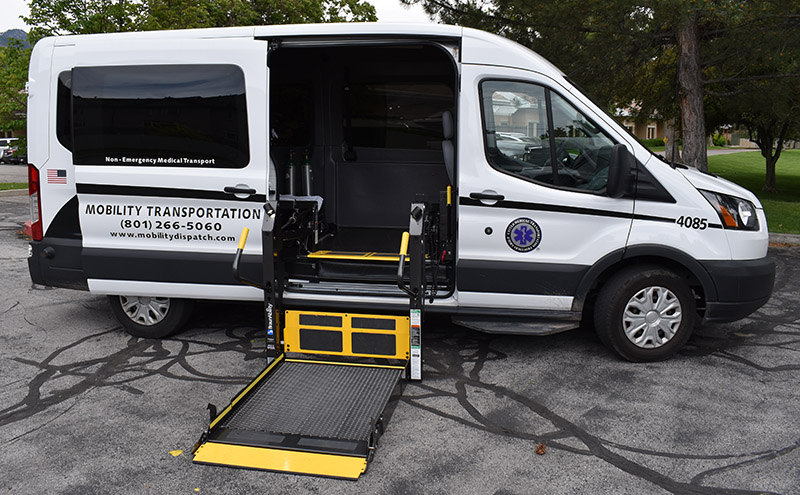Your Dependable Selection: Medical Transportation Services Near Me
Your Dependable Selection: Medical Transportation Services Near Me
Blog Article
Easily Accessible and Affordable Medical Transportation Options for Seamless Wellness Assistance
In the realm of medical care, the access and cost of clinical transport are paramount in guaranteeing individuals can access the treatment they need when they require it. The capacity to effortlessly browse transportation choices can dramatically impact a person's capability to receive timely clinical attention, follow-up treatment, and overall wellness. From non-emergency medical transport services to innovative services like telehealth, the landscape of medical transportation is progressing to fulfill the diverse demands of patients. Considering the relevance of this aspect in health care distribution, discovering the variety of choices available becomes vital for resolving voids in availability and cost.
Non-Emergency Medical Transportation Services

These services are staffed by experienced experts who prioritize client convenience and safety and security during transit. Vehicle drivers are geared up to handle individuals with differing clinical needs and guarantee that all journeys are smooth and trouble-free - Medical Transportation Services Near Me. Additionally, non-emergency medical transportation services typically utilize specific lorries that are wheelchair-accessible, making them suitable for a large range of clients with various mobility needs
Volunteer Vehicle Driver Programs
Volunteer motorist programs are important in supplying transportation aid for people looking for non-urgent healthcare. These programs depend on the kindness of volunteers who donate their time and automobiles to help transport individuals to and from clinical visits. By making use of volunteer vehicle drivers, companies can offer a cost-efficient service for people that might not have accessibility to trustworthy transport.
Among the crucial benefits of volunteer vehicle driver programs is the personalized care and focus that clients obtain. Unlike typical transportation solutions, volunteer chauffeurs commonly establish a rapport with the individuals they help, creating a caring and helpful setting throughout what can be a demanding time. Furthermore, volunteer chauffeur programs can help connect the void for individuals staying in underserved or rural locations where mass transit alternatives may be restricted.
Public Transportation Options

One of the essential benefits of mass transit is its widespread schedule in rural and city areas alike. This considerable network allows individuals from varied histories to take a trip to clinical visits with relative convenience. Additionally, public transportation systems are typically equipped to accommodate people with handicaps, supplying accessible travel options for those with movement obstacles.

Ride-Sharing and Transportation Network Firms
The advancement of contemporary transport choices for clinical objectives expands past typical public systems like buses and trains to include the innovative realm of ride-sharing and transportation network companies. Ride-sharing solutions such as Uber and Lyft have changed the means individuals travel to clinical visits, providing convenience and versatility to people here who might not have access to their automobiles or standard mass transit. These platforms permit customers to ask for a trip with the touch of a button on their smartphones, supplying door-to-door service that can be especially helpful for individuals with flexibility obstacles or those needing help.
Transportation network business (TNCs) have actually additionally played a considerable duty in linking the gap in clinical transportation services. Companies like Veyo and RoundTrip specialize in non-emergency clinical transport, dealing with individuals who need a higher degree helpful throughout their journeys to medical facilities. By partnering with doctor and insurance companies, TNCs guarantee that individuals can access prompt and reliable transportation services, eventually adding to enhanced health and wellness results and individual fulfillment.
Telehealth and Virtual Appointments
Enhancing healthcare accessibility and benefit, telehealth and virtual appointments have actually arised as crucial components in modern medical techniques, reinventing the way individuals engage with healthcare suppliers. Telehealth leverages modern technology to assist in remote interaction in between clients and healthcare experts, using a vast selection of services such as virtual assessments, remote tracking, and digital prescriptions. Digital appointments enable patients to seek medical guidance, medical diagnosis, and treatment from the comfort of their homes, removing the requirement for physical brows through to health care centers. This method not only saves time and lowers transportation expenses for people however additionally enhances the general effectiveness of healthcare delivery.
In addition, telehealth plays an important role in extending clinical services to underserved neighborhoods, country locations, and people check that with minimal wheelchair. By damaging down geographical obstacles and boosting healthcare outreach, telehealth advertises very early intervention, connection of care, and individual interaction. As modern technology proceeds to breakthrough, telehealth is poised to play a significantly significant role fit the future of health care shipment, promoting improved health end results and person contentment.
Verdict

From non-emergency medical transport solutions to innovative remedies like telehealth, the landscape of medical transportation is evolving to fulfill the varied needs of clients.Non-Emergency Medical Transportation Solutions promote the risk-free and timely transport of individuals calling for non-urgent clinical care to and from medical care centers.The advancement of contemporary transport options for medical purposes expands past traditional public systems like trains and buses to encompass the innovative realm of ride-sharing and transport network firms.Transport network companies (TNCs) have actually additionally played a significant duty in connecting the gap in clinical transport services. Non-Emergency Medical Transport Providers, Volunteer Chauffeur Programs, Public Transport Options, Ride-Sharing and Transport Network Companies, and Telehealth and Virtual Consultations all play a vital function in addressing transport barriers to healthcare accessibility.
Report this page